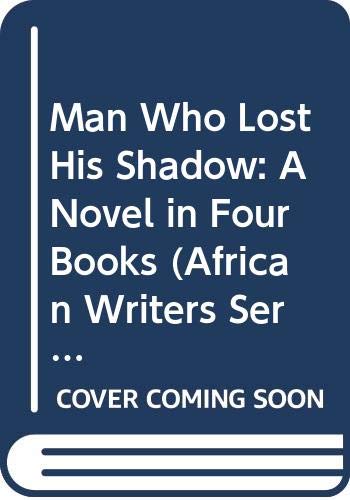What do you think?
Rate this book


352 pages, Paperback
First published January 1, 1961
أحياناً ينتابني إحساس مرير بأني فقدت كل شيء. فقدت نفسي. أضعتها. ذلك عندما تخرج أسئلة الشك من قلبي. تتهمني في كل ما أفعل. عندئذ تدهمني وحدة قاسية. ولا يدهشني إذا تلفتّ ورائي فلم أجد ظلي. وأنا صغير كنت أخرج الى الشارع وألهو مع ظلي. أراقبه وهو يتمدد ويطول ساعات الغروب. عملاقاً على الأرض. فيملأني الزهو. وأحلم بالسنوات القادمة. عندما أكبر وأصبح في طول ظلي. في ساعات الظهيرة. كنت أقف في فناء المدرسة فوق ظلي أراه قزماً صغيراً. وأسخر منه. وأشعر أني أكبر منه. الآن لا أظن أني سأجد ظلي لا طويلاً. ولا قصيراً. لا يملأني بالزهو أو السخرية. ما الذي يبقيه معي. وقد هجرتني نفسي.. نعم أنا الرجل الذي فقد ظلهحكاية صعود صحافي مصري كبير – كبير في الرواية. وربما كبير أيضًا في الحياة الحقيقية إذ قيل يومها في مصر ويقال دائماً إن هذه الشخصية الروائية تخفي وراءها شخصية واحد حقيقي من أقطاب الصحافة في مصر الحقيقية في الأربعينات والخمسينات يقال أنه هيكل– وهذا الصعود ينطلق في الرواية. من الحضيض الى القمة بدءاً من بدايات سنوات الأربعين. هذا الصحافي يدعى هنا يوسف وهو حين نلتقيه أول الأمر شاب في أول عمره. ابن لأستاذ مدرسة بائس الحال. ولكن يحدث للشاب أن يدخل من خلال تدريس أبيه ابن عائلة ثرية ذات سلطة ونفوذ. الى قصر وحياة تلك العائلة ليقع في هوى ابنة العائلة الحسناء مرتبطاً بصداقة مع ابن العائلة مماثله في العمر. وطبعاً لأن مصر كانت تعيش في ذلك الحين في مجتمع شديد الطبقية ولأن الطبقية تفرق تماماً بين يوسف والفتاة. لن يحدث لذلك الغرام أن يكتمل. فنحن لسنا هنا في واحدة من روايات ماء الورد التي تنتهي فيها الأمور نهايات حسنة. بل في عمل واقعي تماماً.